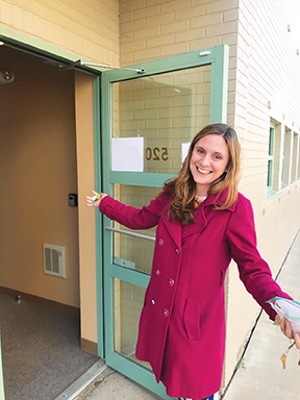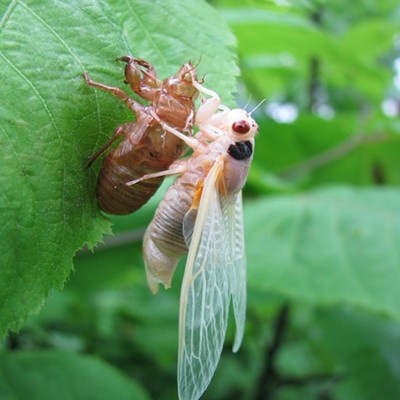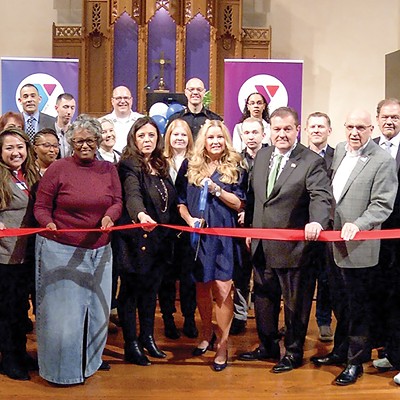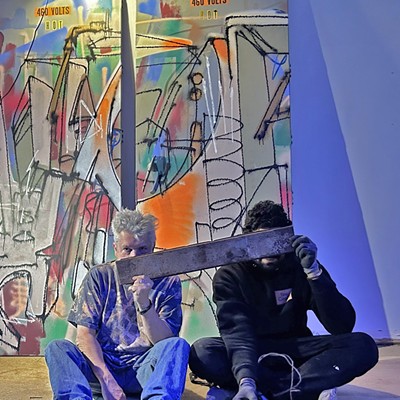For years IEC rented space in a variety of locations near the State Capitol – on Adams, Cook, Monroe and Broadway streets. Now, for the first time in its 43-year history, IEC purchased a building in downtown Springfield. Its new home is 520 E. Capitol Ave. Jen Walling, IEC executive director, says she hopes this new space will become an environmental community center for Springfield.
IEC is a coalition of 80 organizations. Some are Illinois affiliates of large national organizations, such as the Sierra Club and The Nature Conservancy. Others are statewide organizations, such as the Illinois Native Plant Society and Illinois Recycling Association. Many, such as the Environmental Law and Policy Center, work on multiple issues, while others are single-issue community-based organizations. IEC lobbies at the Illinois Statehouse and helps to inform and educate elected officials and individual citizens about a wide range of public policy issues that impact the environment.
“It was a bold and brave step to form IEC,” says Virginia Scott who worked at IEC for 20 years and served as executive director from 1984-1997. “Inspired by the first Earth Day in 1970, 20 organizations came together and decided it was worth trying to work together. What IEC lacked at the beginning in dollars and staff, it made up for in enthusiasm and volunteers.”
IEC has been active at the Statehouse for many years. As Illinois governor in the 1990s, Jim Edgar interacted with Scott on environmental and conservation issues. IEC was important in the creation of the Conservation Congress and helped pass Conservation 2000, Edgar’s initiative that invested $100 million for conservation and water quality programs. Edgar has high praise for the IEC. “Virginia Scott and IEC were very effective in advancing policies that improved water and air quality,” says Edgar. “Additionally, with IEC’s support, we increased funding for bike trails, nature preserves, open space and recreational opportunities.”
IEC’s role extends far beyond working on legislation. Examples include sponsoring annual meetings, holding forums with candidates for governor and other elected offices to discuss environmental issues and advocating on behalf of the important role of state agencies and their need for funding.
IEC has already used its new office space for a reception for newly elected members of the Illinois General Assembly. Practicing what it preaches, IEC added a fresh coat of paint on the interior walls, using recycled paint purchased from EarthPaint.org in Wood Dale. They will be acquiring furniture from Sangamon Reclaimed of Springfield, whose mission is to handcraft furniture from old American barns. IEC plans to incorporate other sustainable building features in the future.
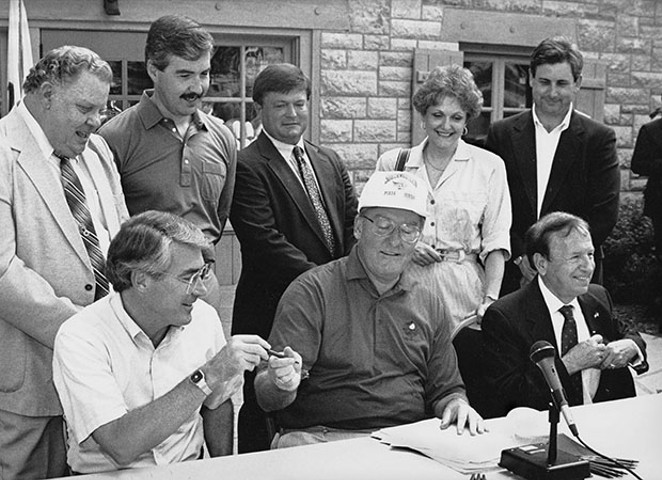
IEC once operated on a shoestring budget and a tiny staff. Soon there will be 10 full-time staff in Springfield, along with an office in Chicago. On a typical session day there may be 15-20 people associated with IEC in Springfield, lobbying on behalf of critical environmental issues. “The mission of IEC remains the same, but now IEC has the financial and staffing capabilities to carry out things we knew were important but did not have the resources to pursue,” says Scott.
Clean energy, nutrient pollution of rivers and surface waters and conservation of open space are now the top three priorities for IEC. IEC’s goal is to achieve 100 percent clean energy by 2050. Walling is dedicated to working with all members of the Illinois General Assembly. IEC is “actively bipartisan, and we seek to work with both parties whenever we can,” says Walling. She commented on a recent meeting with newly elected members of the Illinois General Assembly where one new member told her not to discount him as supporting environmental issues “simply because he is a Republican.”
Elaine Nekritz, former Democratic member of the Illinois House of Representatives, worked closely with IEC on clean energy, toxic chemicals in consumer products and bicycle-related issues. “IEC has grown into a very powerful voice for a broad range of environmental issues,” says Nekritz. “IEC conveys issues to legislators in an understandable way, and environmental issues have a much higher profile as a result of their work.”
“The IEC is an organization which is very good at working in a collaborative manner on complex issues,” says Rep. Tim Butler, R-Springfield. “From local food systems to industrial hemp, they have offered in-depth assistance to me on several pieces of legislation I have helped navigate into law. While I may not agree 100 percent of the time with the IEC view on an issue, I enjoy working with them, and I’m pleased they have found a permanent downtown home for their Springfield office.”
Walling, who has been with IEC since 2011, is passionate about the environment. She has bachelor’s and master’s degrees in environmental science and a law degree from the University of Illinois. Asked what motivates her to work for IEC, she says, “a sense of justice and fairness. We need to take care of our resources and provide an environment that everyone can live in healthfully.” She is frustrated when businesses or organizations are not thinking about the people who are impacted by their practices. Walling is personally committed to sustainable behavior on her own initiative, and she finds it rewarding when legislation is passed or a policy implemented that encourages others to adopt sustainable practices.
Walling was recently named co-chair of the Powering Illinois’ Future Committee for Governor-elect J.B. Pritzker, one of several working groups appointed by the Pritzker transition team. The 30-member committee consists of both advocacy and industry stakeholders who will identify opportunities to invest in a clean energy economy.
Walling is looking forward to working with the new administration. “In recent years many agencies were not advocating for themselves,” says Walling. “I am excited about the opportunity to work with leaders of agencies who are there to build the agencies up and make them stronger rather than be there to tear them apart.”
Karen Ackerman Witter served as natural resources policy adviser to Governor James R. Thompson and was director of the Illinois Department of Energy and Natural Resources in the 1980s. She worked closely with the Illinois Environmental Council at that time to pass Illinois’ first Solid Waste Management Act and Groundwater Protection Act.

